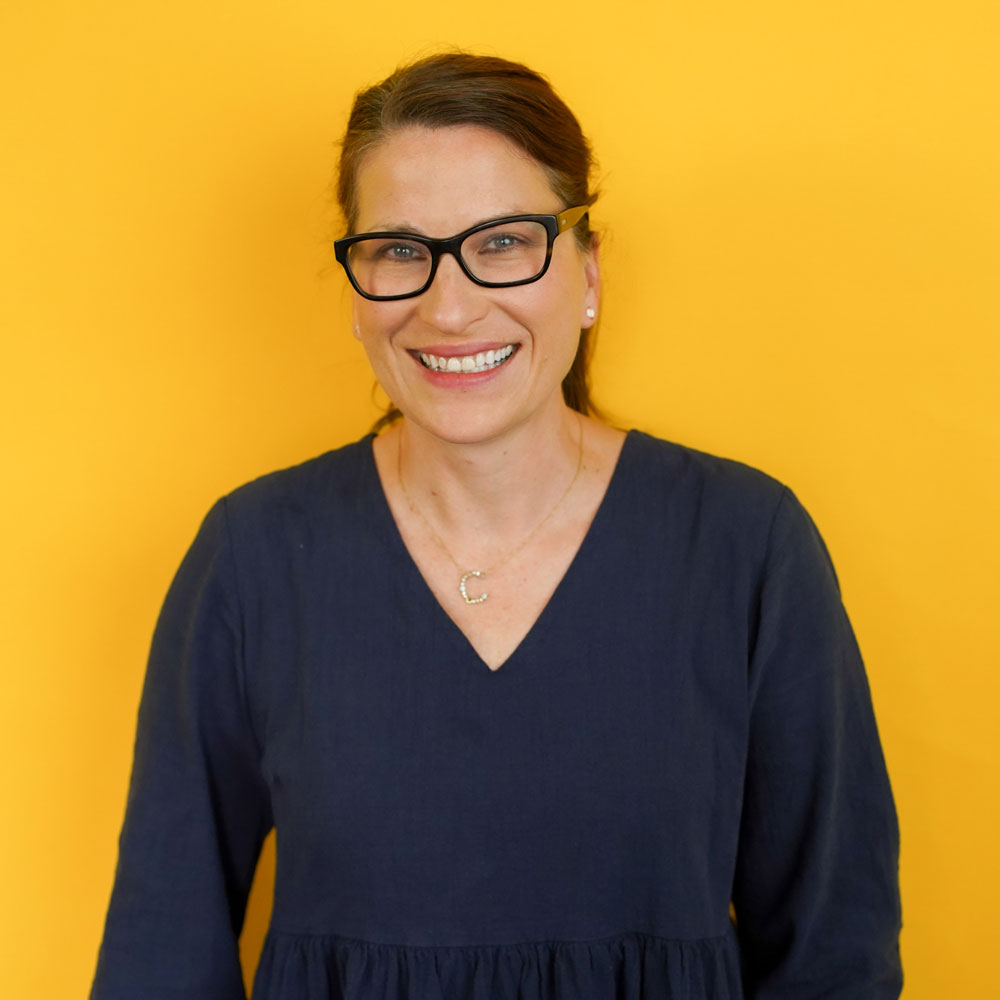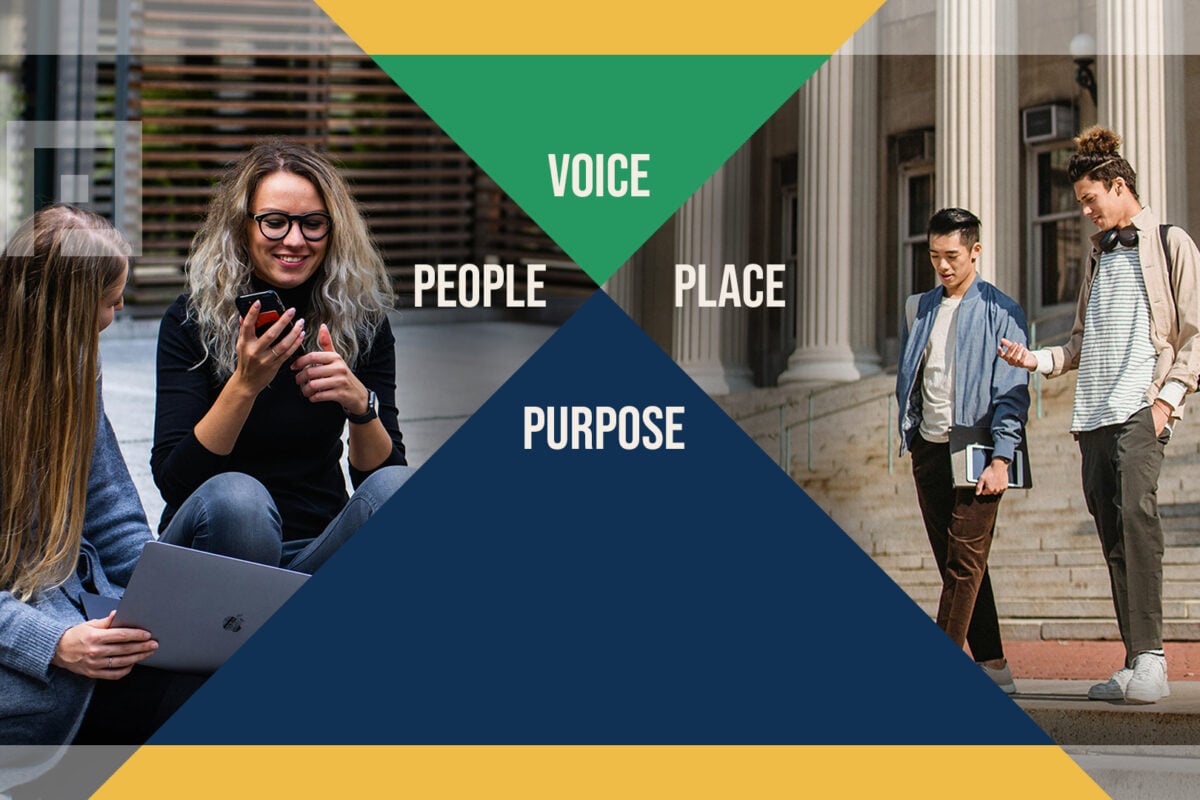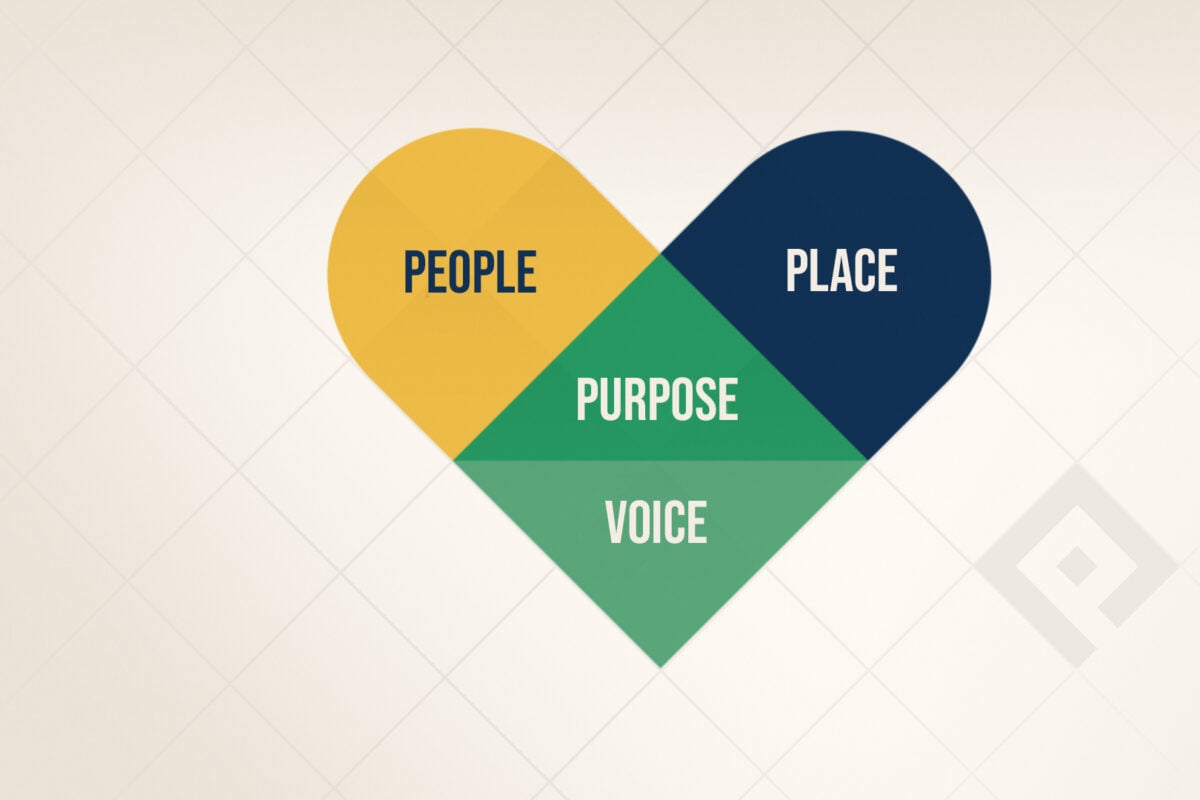First-generation college students are an important audience for all kinds of institutions, and websites are the number one platform for the college-decision process. Are enterprise websites meeting the needs of these students?
Show Notes
Paskill’s Lead UX Strategist Kelly Kautz answered this question through her yearlong research effort, surveying 200+ first-generation college students.
This episode addresses:
- Defining a first-generation college student
- Digital habits of first-gen college students
- Key takeaways from the research for colleges
- Responses to the research from hundreds of higher ed marketers
- How new research on this audience can build empathy
Learn More About Our First-Gen College Student Website Audit
Transcript
Cathy Donovan [00:00:00]
Hello and welcome to the Innovating Enrollment Success Podcast, where we talk about what it truly takes to engage today’s prospective students. Crucial to real engagement is understanding students’ preferences and their diverse experiences. An increasingly important higher education segment is first-generation college students.
We know that a college degree can positively impact the professional and financial trajectory of a student and their families, but being a first for a complex process like applying to college brings about barriers we are now beginning to better understand. I’m Cathy Donovan, Agency Marketing Director at Paskill, a higher education enrollment marketing firm supporting all kinds of institutions with building diverse and inclusive classes, including first generation college students.
Today I’m very pleased to be joined by an enrollment marketing researcher gaining recognition for her groundbreaking findings on how first-generation college students in just under a half hour will be talking about her research, and how it supports new thinking and understanding the preferences of this important audience.
A lead UX strategist, Kelly Kautz established Paskill’s Digital Strategy in 2021. Since then, she has created web solutions for clients such as Harrisburg University, Cambridge College, and Reinhart University. A former journalist, she has written for the New York Times, Forbes, and Salon. Very recently, she served as the web and digital experience track expert at the EduWeb Summit in Washington, D. C., where she presented this session, “Does Your Website Work for First Generation College Students?”
Welcome, Kelly, and thank you for being here.
Kelly Kautz: Thanks so much for having me. I’m so excited to talk more about the research.
Cathy Donovan: Before we get started on learning more about the research, I just wanted to understand a little bit about what led you to pursue it in the first place.
Kelly Kautz: I was led by simple curiosity. I hate not knowing things, and when working with clients at the beginning of a website project, many of them would tell me that first-generation college students are an important audience for them. But they couldn’t tell me a lot about these students. When it comes to firsthand research other than simple enrollment metrics, enrollment data. And so I started by doing my own secondary research to learn more about them and their needs because it’s a common axiom in user experience, you are not the user. You really have to go out and understand the unique experiences and attitudes and decisions and mental models that each user brings to a site.
So, even when I looked online, I looked in academic journals, different resources, I was finding a lot of information specific to disparities. A lot of the research does focus on disparities, but I wasn’t finding much information specific to their digital habits. And I really wanted to understand how do they navigate college and university websites. What common challenges are they running into? Do they understand the vernacular, the words that a lot of these websites are using when it comes to things like applying, enrolling, understanding financial aid. And so that curiosity led me to present my own research proposal and get funding internally because I knew that that would not only benefit me, but it could benefit our clients as well as their users.
Cathy Donovan: Fantastic. For folks listening and maybe learning about this research for the first time, which is comprehensive, and there’s other ways to learn more about it. I’m just hopeful that you could share a little bit about the methodology and some key takeaways.
Kelly Kautz: Absolutely. So we started with a survey. After we cleaned all of the data, it ended up being, I think, 218 responses. Of those responses, about 60 percent of them were first-generation college students. And we also got a smaller subset of second or returning generation college students because we wanted to not only understand the trends for first-gen students, but then how those trends compare and if there’s any differences or nuances between the two segments. So that was a survey of about 30 questions asking them everything from their attitudes and emotions associated with the process of researching and applying to colleges to what types of content were important to them. Who influenced their decision, if any, who helped them along the way to get a better understanding of what that process was like and where were the trends and the outliers.
Once we did the survey, we also did 30 in-depth usability tests specifically with first-generation college students, and we tracked how they navigated college websites. We allowed them to choose a college or university that was interesting to them that they hadn’t attended and all of these users were either incoming freshmen, freshmen or sophomores in college.
We wanted to focus the questioning on their current experiences or experiences that have happened recently so they weren’t relying too much on their memories of what happened. They could draw from those firsthand experiences really accurately. So that was an important part of the research as well was targeting our focus to those users who were either actively involved in that research process, or they weren’t very far removed from the research and application process.
And that added up to about 11 hours of footage. So we combed through the footage, the usability testing. And then, of course, we got a lot of great data as well that tracked their clicks, the amount of time it took them to complete tasks. We asked them about their sentiment, not in those words, but we asked them how they felt was this easy or hard to understand, you know, emotionally, how are they feeling about this as well.
So we got a lot of additional data other than just the videos.
Cathy Donovan: When you, when you talk to folks about your findings, you know, what are some of those you know, the, the three biggest takeaways that maybe, um, people who work in higher ed just didn’t know before that now they have to pay closer attention to the biggest takeaway.
Kelly Kautz: Well, one of the biggest surprising findings for me was that first-generation college students don’t consider themselves first-generation college students in a pretty large percentage of the time, I think it was 20 percent in our research, they didn’t identify as first-gen either because their parents went to college, maybe they earned an associate degree or they didn’t earn any degree, but they took a couple of college courses.
So when we were screening users for the testing, we used the definition that is used at the federal level to determine what eligibility for funding for things like Pell grants and support services, which says that first-gen college students are, um, students whose parents have not earned a bachelor’s degree.
So they didn’t know that they met the criteria for being first-generation. In fact, even after we presented this research at EduWeb a few months ago, people were coming up to me and saying, I didn’t know that I was first-gen too. So even people in academia didn’t necessarily realize that they meet these qualifications as well.
And that’s important because that opens the door to a lot of support resources and services and financial aid that might benefit them along the way, which they, if they don’t consider themselves first-gen, they may not even know to seek those out. So, that was one of the biggest ones. You can’t rely on these students to self-identify for those services. You really have to help them connect the dots.
Cathy Donovan: You presented on this topic recently to, to hundreds of higher ed professionals. Can you talk a little bit about how the research was received and that feedback may have validated your research?
Kelly Kautz: So one of the biggest things I wanted to get across in the research presentation, in addition to some of the findings and the data that we uncovered, was this, this idea that your website, your user experience, your digital ecosystem, all of that is not just a marketing tool. It is a signal of who belongs. On your campus in your classes, and the usability issues that we uncovered, I got to witness firsthand how much that eroded users’ confidence, how much it contributed to that sense of not belonging there. They started to question if they were smart enough to go through the application process to go through the FAFSA and the tuition and financial aid forms and seeing that made me realize it’s so much more than just marketing outcomes, enrollment outcomes.
Your website’s user experience has a direct correlation with student outcomes as well, and with so many universities focusing on diversity, equity, inclusion, and belonging, user experience plays an even larger role in that than I had appreciated before I did this research.
Cathy Donovan: So talk about what’s ahead in terms of new research that’s coming up for you.
Kelly Kautz: I would hope to repeat this in a couple of years and maybe dive into some of the areas that were most surprising. So whether that is just full repeat of this, the same survey and the usability test to see if there are any market improvements, I would love to see that. I don’t know if that will happen, but I also know that in 5 years from now, the landscape is changing so dramatically, even from one month to another with the availability of new AI tools and how those are opening the door for things like personalization and customization. I think those are really going to transform the landscape. So that may be another good focal area for new research in are these improving the experience for students and 1st generation college students? Are they introducing new challenges into the experience? The technology is so new. Oftentimes when marketers roll this out, they may introduce some other points of friction that you don’t even know about until users start to experience them and they receive that feedback or they see that in their analytics.
I think what is to come will depend on, on what that landscape looks like in a couple of years from now, but there’s certainly huge opportunity to better understand all types of users, all segments of users, and to use those insights to create a better user experience to improve their accessibility to information that they need to signal that, you know, these, these colleges and universities, um, that work so hard to serve them are really places where they can thrive.
Cathy Donovan: So, why do you think an agency conducting its own primary research adds value to a higher ed partnership?
Kelly Kautz: I think for a couple of reasons. It empowered me to talk from firsthand experience when I’m sharing recommendations. I know now that they’re not just rooted in what the industry is saying is best practice. I can bring those personal insights to clients, and I can share those with clients as well. If there is a particular usability test or a particular theme that’s relevant to their team, I can bring that footage to the table and, and that helps build empathy across organizations as well and institutions. We talked at eduWeb about building a community of practice and understanding what are the best ways to serve all of these different user segments.
So anytime I can help build empathy among those broad teams, oftentimes they’ve got a lot of disparate roles and responsibilities and have them come together under a common understanding of their user and what the user needs, I think it makes the outcome so much better. I’m really thrilled to be able to do that and I’m, I’m thrilled to, uh, hopefully do more of that in the future.
Cathy Donovan: So let’s talk a little bit about innovating enrollment success. That is the name of this podcast, it’s the name of Paskill’s new tagline. Just curious what that might mean to you and your role at the agency.
Kelly Kautz: It comes down to governance for me. A lot of times digital governance, website governance, data governance, and innovation oftentimes, I see that happening within institutions that are really clear from the top down about their mission, who they’re trying to serve, how they’re trying to serve them.
And they’re not only clear about who they’re trying to serve, but they know the ins and outs of those audiences, they understand the needs and the past experiences, the mental models in a deep way, because when you’re trying to influence an audience, when you’re trying to create experiences that are truly memorable, it requires that depth of understanding.
Any time a institution can put aside departmental silos, they can put aside internal politics and really focus their efforts on what is going to make the most difference to their users, to their target audience, their prospective students, that is when things become really impactful from a marketing standpoint, from a communication standpoint, from a DE& I standpoint as well.
Cathy Donovan: Thanks so much for joining us today, Kelly.
Kelly Kautz: Thanks for having me.
Cathy Donovan: Well, thank you so much for joining me today. I hope this conversation inspired listeners to learn a little bit more about first-generation college students and how institutions can cultivate more belonging on their websites and their campuses.
For more about Kelly and her research, please see our show notes for links and think of Paskill as your resource for new and innovative thinking on enrollment solutions for higher education.





